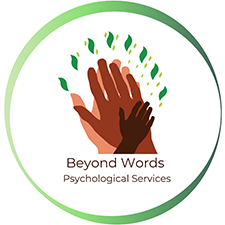Is a Psychotherapist the Mental Health Professional for You?
It can be difficult to choose the mental health professional that fits your needs. The media often portrays psychiatrists, psychologists, psychotherapists and social workers interchangeably, even though there are significant differences in the training these professionals receive, and the services they offer. April’s weekly blogs will focus on helping you to understand the differences between these professionals so that you can make an educated decision about which services you’d like to pursue. This week: Psychotherapists.
Degree, Education & Training:
This is a tricky one. “Psychotherapist” and “Counselor” are actually generic terms, and are not necessarily indicative of any specific training or expertise. Technically, anyone can identify themselves by these terms, even someone with only a high school diploma. When you are seeking counseling, the key is to search for an individual who has a Master’s degree (M.A. or M.S.) in a mental health-related field, such as counseling, as well as additional qualifications. A typical Master’s degree involves two years of graduate school, which includes one semester of practicum and one semester of internship. Some Master’s degrees are specialized, such as those for Marriage and Family therapy. In Colorado, there are some additional factors to which you will want to take notice. A “Registered Psychotherapist” is a person who has a Master’s degree, but is not licensed or registered as seeking a license; if you choose to see an individual with this title, make sure to verify that they have at least a few years of experience in the mental health field and are practicing under the supervision of a licensed professional, as they are usually fresh out of school. A “Licensed Professional Counselor”(LPC) is a better bet, because they have completed at least two years of supervised practice post-master’s degree, and are practicing under their own license. Note that an individual with “LPCC” (Licensed Professional Counselor Candidate) behind their name is a registered psychotherapist who has officially registered in the process of seeking licensure.
Services:
Licensed Professional Counselors primarily focus on counseling services. They may work in private practice, community mental health centers or other counseling agencies. Many choose to specialize with a specific population or issue, such as those with Marriage and Family therapy degrees. Some LPC’s who have a great deal of experience in their specialty area choose to provide consultation or supervision services to psychotherapists who are seeking licensure, or psychoeducational services to clients, other professionals and agencies so that they may learn more about a particular topic.
When Should You Visit a Psychotherapist?
Once again, remember that your best bet is to choose a Psychotherapist with the credentials of “M.A./M.S.” and “LPC,” to ensure that you are working with a professional who has been licensed by the state and has had at least two years of experience in the field following their Master’s degree. You may seek a Licensed Professional Counselor when you are struggling to manage day-to-day stress, or are experiencing more severe difficulties due to fluctuations in mood, intense anxiety, disruptive sleeping and eating patterns, anger management problems, relationship conflicts or other areas of distress. Many individuals also seek counseling as a proactive measure when they are not struggling with anything in particular, and instead wish to develop their self-awareness, insight and long-term goal achievement in a supportive and positive environment.
Link of the Week: CAREFULLY-SCREEN-YOUR-THERAPIST
Next Week’s Blog: Is a Social Worker the Mental Health Professional for You?
